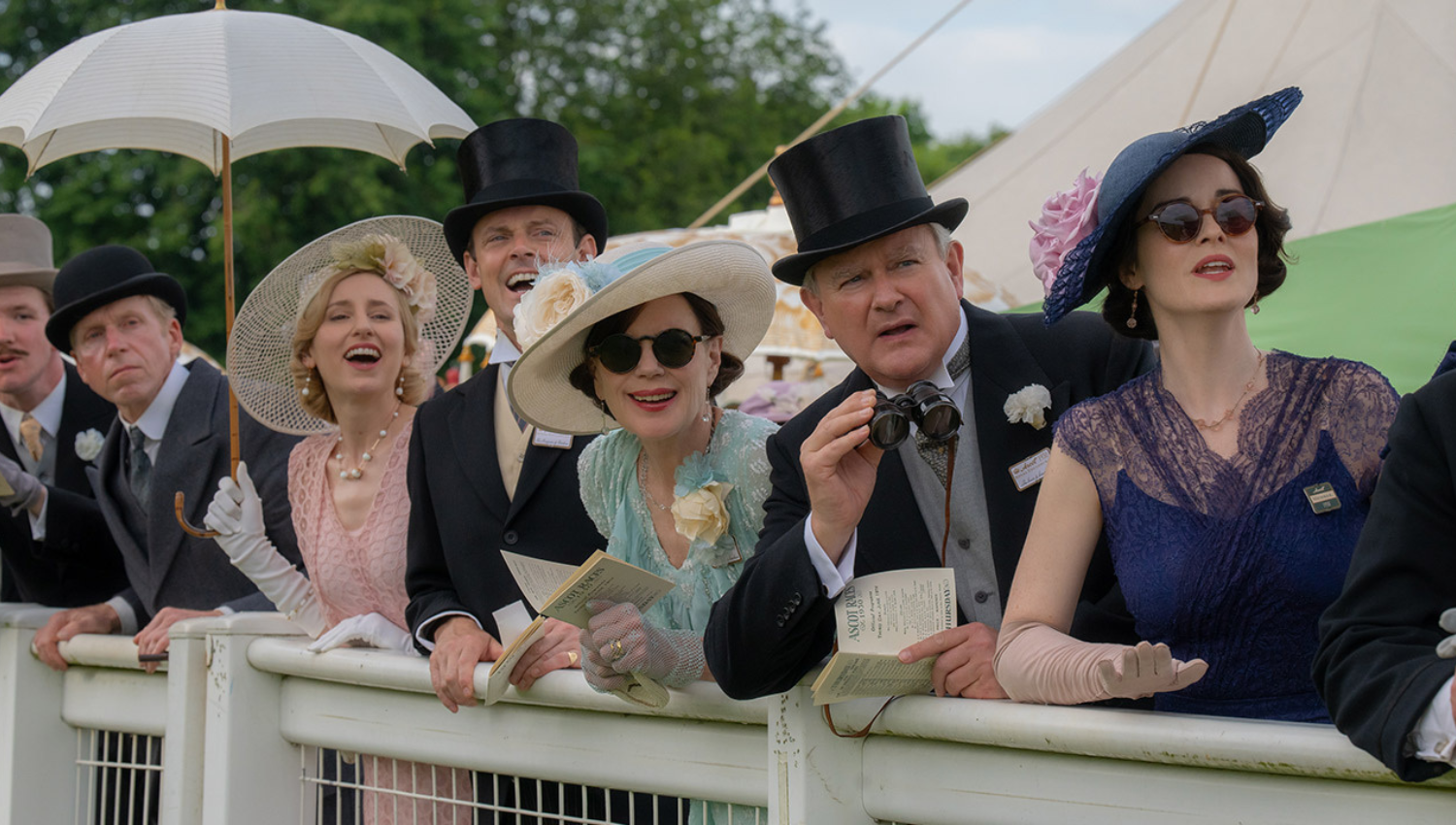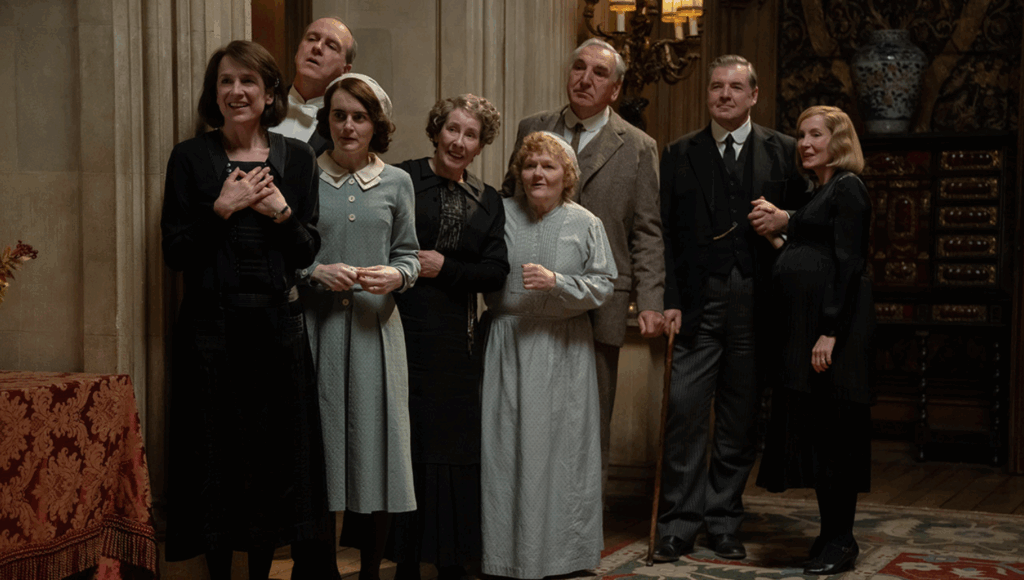
Downton Abbey: The Grand Finale
- Alessandro Nivola, Allen Leech, Arty Froushan, Brendan Coyle, Dominic West, Douglas Reith, Elizabeth McGovern, Harry Hadden-Paton, Hugh Bonneville, Jim Carter, Joanne Froggatt, Joely Richardson, Julian Fellowes, Kevin Doyle, Laura Carmichael, Lesley Nicol, Michael Fox, Michelle Dockery, Paul Copley, Paul Giamatti, Penelope Wilton, Phyllis Logan, Raquel Cassidy, Robert James-Collier, Simon Curtis, Simon Russell Beale, Sophie McShera
James Brown
“Downton Abbey: The Grand Finale” arrives like the last chime of an old mantel clock—measured, sentimental, and confident that the household has earned its happy ever after. Julian Fellowes understands the ritual by now: a flourish of silver plate covers, a scramble of white gloves downstairs, an upstairs noses tilted just so. The pleasure is partly anthropological—how the Crawleys and their staff maintain continuity as their way of life shrinks—and partly musical, variations on the theme John Lunn’s score has been playing for a decade. The movie accepts its assignment with professional grace: give everyone a moment, and give the house its due.
The film is unembarrassed by its fan service. It is almost proud of it, like Carson (Jim Carter) polishing the already polished. We’re given entrances and encores, callbacks and reconciliations, a careful redistribution of happiness that respects rank but indulges sentiment. Fellowes understands that a farewell is a contract: deliver closure without making it the end. He arranges couplings, settles old grievances, and grants us hints of the future. The plot is clockwork, and the movement feels precise; even if though gears of story show at times, fans won’t mind.
What keeps this courtship with nostalgia from cringing is the show’s old weapon: tone. Jokes land in teacup tinkles; sorrows are expressed with handkerchiefs; politics arrive like changes in the weather rather than a sermon. The house is again a principal actor—its corridors staging diplomacy, its staircases doing the narrative heavy lifting. When calamity threatens, it is answered by tact; when modernity knocks, the door opens just enough to be polite. The camera relishes fabrics and faces, backs of hands and thresholds.
The Grand Finale doesn’t spark fireworks as much as it quietly extinguishes the candles, one by one.
There are moments when you sense the series negotiating with its own myth. Lady Mary (Michelle Dockery), or “just Mary” now, who has escaped ruinous scandal before now finds her self embroiled in unavoidable disgrace. Lord Grantham (Hugh Bonneville) moves through scenes like a man who feels personally responsible for the decline of the British aristocracy in the Modern Era. Lady Edith (Laura Carmichael) is the editor who remembers she is also a sister; Branson (Allen Leech) the reformed radical now fluent in compromise. Below stairs, Mrs. Hughes (Phyllis Logan) and Mr. Carson preside like secular clergy, turning labor into liturgy. Nobody receives a transformation; everyone receives a chapter break.
Is it all too neat? Naturally. The danger of finales is mathematics: summing things up often comes at the expense of the story. Yet this one earns its “A” in arithmetic through craft. Scenes begin in the middle, end before they overstay, and trust that the audience can read a look across a drawing room. Lunn’s theme returns not as nostalgia bait but as architecture, pinning sequences together with a pulse that never quite insists.
There is, finally, a humility to the enterprise. “Downton” never pretended to be revolution; it aspired to good manners while peeking at upheaval through lace curtains. The Grand Finale doesn’t spark fireworks as much as it quietly extinguishes the candles, one by one. The saga ends on an optimistic note, with The Crawley’s unaware of the coming events of the 1930s that will bring an abrupt end to the world they live in. What the film offers is rarer: the assurance that continuity, though compromised, can be tenderly maintained—by memory, by duty, and by the stubborn insistence to maintain civility.
Final Thought
Fellowes ties his ribbons tightly, yet the knots read as courtesy rather than confinement.

